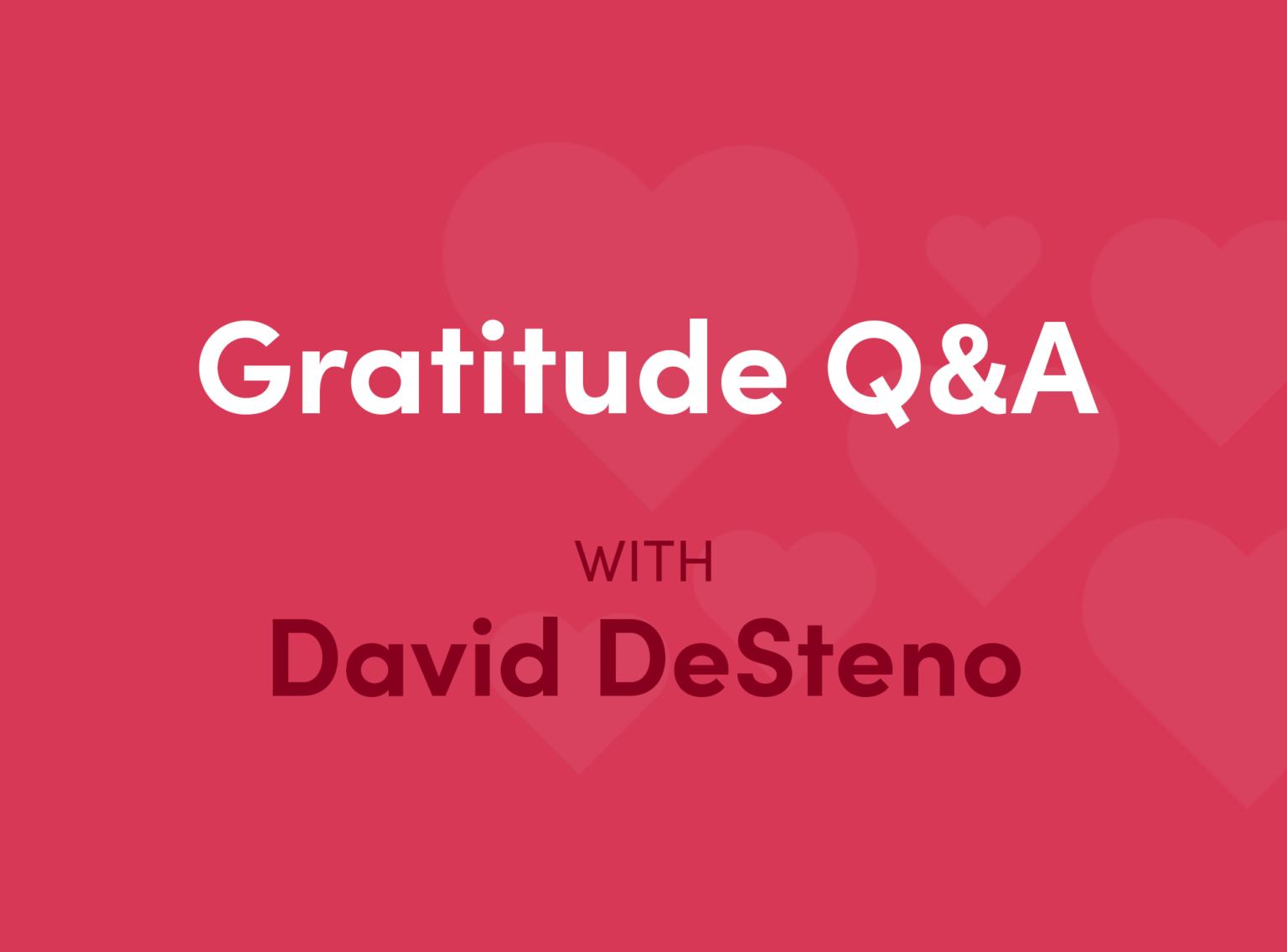Vitamin G
The expansive power of gratitude
2022-11-13 | Gratitude

David DeSteno—a professor of psychology at Northeastern University and the author of four books, including Emotional Success: The Power of Gratitude, Compassion, and Pride—talked to us about the surprising power of gratitude. Here are a few highlights:
Everyone wants their kids to be more grateful. But why is gratitude so important?
Gratitude is a super virtue. It’s an idea that dates back to Cicero, who said that gratitude is not only a great virtue but the parent of all other virtues. When you feel gratitude, you become more honest. It cuts rates of cheating dramatically. When you feel gratitude, it makes you more generous. You give more resources to other people. It also gives you more patience and perseverance. When you feel gratitude, you put more weight on future gains. So you’re more willing to put in time and effort in the moment, even if it’s difficult.
Also, when you feel grateful, your moral compass becomes stronger. When you see other people commit transgressions, you hold them to higher moral standards. Your expectations rise.
Is that a downside to gratitude?
No, it’s a good thing. If you’re feeling grateful, and you see person A treat person B badly, you are more likely to intervene and try to tell person A, “Hey, you shouldn’t do this.” You see your friend say something unkind or tease someone, then you’re more likely to stand up for that person. So your moral radar goes up.
Why are we not more naturally grateful? If gratitude has so many benefits, why aren’t we just grateful all the time?
I think one reason is, we’re so self-focused now as a society—in our own goals and in getting ahead. To be truly grateful, you have to be other-focused.
Sure, people will say, “Oh, thanks” if you do something for them. But there’s a difference between expressing a quick thanks and actually pausing and allowing yourself to feel the emotion.
For a lot of people, feeling indebted to someone is a negative. Some people think that if they have to ask for help, it makes them seem weak.
But actually, that’s a misprediction. A study by Sara Algoe, Chris Ovies, and other psychologists finds that if we see someone express gratitude, we perceive them as being a better person. People actually like us more when we do it.
Gratitude makes us willing to sacrifice for that person—not only to pay back our debts but also to pay forward and help others. Not like, “Oh, great, you got me a present, now I have to get you something.” It’s not that kind of payback. It’s a joyful payback. When you feel grateful, you not only go above and beyond to help the person to whom you’re grateful, but you also pay it forward. That is, if I’m grateful to you and I see somebody else who needs help, I’m just as likely to help them.
When a kid receives a gift, say from grandparents, we always remind them to say thank you. Is this a good idea?
It depends on how you do it. If kids feel embarrassed or ashamed for not doing something, they want to avoid those situations because they feel uncomfortable. So it’s better to say, “Here’s what Nana and Grandpa did for you, which they didn’t have to do. Isn’t that wonderful?”
What makes people feel grateful is knowing that people went out of their way to do something. So make it a positive experience, not a shaming one.
What’s one thing we can do to help kids feel more grateful on their own?
You can model how to savor gratitude. Say a neighbor drops off cookies. Take 30 seconds to focus on how this little act of kindness makes you feel. Share with your kids what a difference it made to stop and fully pay attention to that feeling of gratitude. “Wow, that was just the nicest thing. It makes me feel great knowing how thoughtful our neighbor is, and how much they care about us!” Eventually, savoring moments of gratitude throughout the day becomes a habit.
Just like with medicine, where you might take multiple doses, that helps the feeling of gratitude stay in your system. Because when you feel it, that’s when it influences your behavior the most.
Any final advice?
It sounds silly, but gratitude is like taking a virtue vitamin. It strengthens many virtues, not just the virtue of gratitude itself.
We’d love to know your thoughts after reading our Tips of the Week. Check the following boxes if applicable: